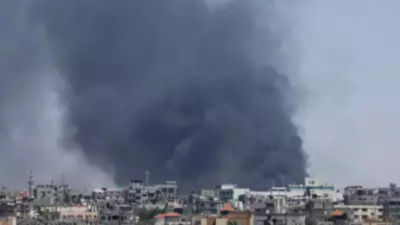
Local opposition has grown due to concerns about safety and environmental impact. Residents fear that the expansion will jeopardize their health and livelihoods, citing insufficient safety measures and lack of transparent communication from the authorities. The proposed reactors are situated in a seismically active zone, heightening anxiety about potential accidents similar to the Fukushima disaster in Japan.
The NPCIL, supported by the state and central governments, argues that the new reactors are essential for meeting the region's growing energy demands. Proponents insist that the project adheres to international safety standards and will provide a significant boost to the local economy through job creation and infrastructure development.
However, the escalating protests have been met with a heavy-handed response from the authorities. Reports indicate that numerous demonstrators have been detained, and charges of sedition and rioting have been levied against prominent activists. This has sparked condemnation from human rights organizations, which accuse the government of suppressing dissent and violating the rights of peaceful protesters.
As construction progresses, the conflict between development and local opposition remains unresolved, raising critical questions about the future of energy policy and community rights in the region.
